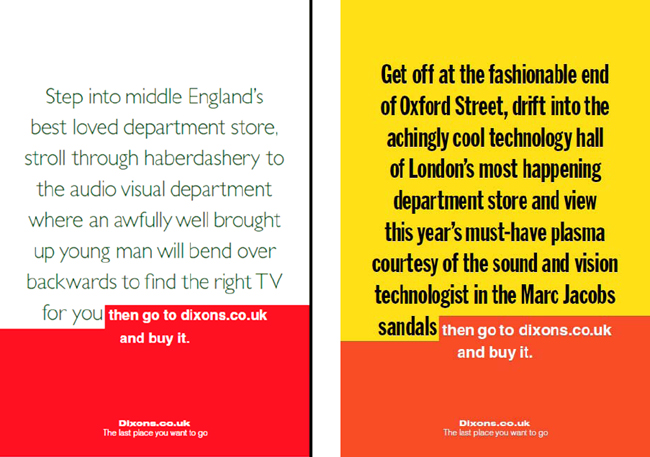The impressive attendance, despite the awful weather, at last night's London launch of the 2013 Account Planning Group (APG) Awards highlighted the event's importance for many UK-based planners. Unsurprising, as the APG Awards tend to recognise planning as a discipline, rather than advertising in general: they reward a campaign's strategy – and not just its splashy creative or strong business results.
Winning an APG Award is "all about learning, not just effectiveness," confirmed AMV BBDO's Craig Mawdsley (he's also currently the APG's chair). "It's about passing on what learning we can give to other planners [and] the strength of the idea, not the sizzle of the creative." This status as idea generators and innovators, he added, makes planners "advertising's R&D department". And, added this year's chair of judges, eatbigfish's Adam Morgan, "agencies don't spend enough time on their R&D".
Just as in previous years, the 2013 Awards will be judged according to a strict formula. The campaign idea, and the written quality of the case study, each counts for 40% of total marks, while the novelty of the learning takes a further 10%. The final 10% goes on what Andy Nairn, chair of this year's short listing judges, termed the "jealousy factor": whether or not the paper makes the judges – which this year include JWT's worldwide planning director Guy Murphy and Mindshare's head of strategy Alastair Green – wish they'd thought of it first. Nairn, who recently announced plans to set up a new agency of his own, added: "What wins you an award is doing something extraordinary and exciting."
So much for the theory – what about some practical examples of winning APG Awards cases? As it happens, highlights from both of 2012's joint winners, campaigns for Dixons.co.uk and the Colombian Ministry of Defence, were presented last night, offering pointers for how to put together a great case for this year's awards.
The insight behind the Dixons.co.uk campaign, from planners at M&C Saatchi (the full case is available to Warc subscribers here), deliberately focused on a potential weakness of the client, an online-only UK electronics retailer being squeezed by online discount outlets at one end and brick-and-mortar department stores at the other. Rather than take the conventional approach of encouraging users to explore their website and use it to make their ultimate decision, they positioned Dixons as the "last place you want to go" – in other words, when you've undertaken a lot of online and offline research, and are ready to purchase an exact make and model for a low price.

The campaign employed sharply-worded print and outdoor ads – with font and copy even tailored to individual department stores' branding. In fact, they only used the billboards in three London Underground stations: Green Park, Knightsbridge and Oxford Circus. No prizes for guessing why.
Visits to Dixons.co.uk from Londoners subsequently spiked by over 30%, and the PR coverage the campaign picked up – including an invaluable conversation in a documentary following around staff at rival retailer John Lewis – also raised website visits by around 10% nationwide.
The other 2012 winner, which aimed to encourage demobilisation among the FARC, a Colombian paramilitary group, via a series of events – including lighting up trees in the jungle with Christmas lights – came from Lowe, and also offered some very compelling results. (You can see the campaign's creative mastermind, Jose Miguel Sokoloff, speak about the role of planning in the campaign here).
While the two winning campaigns were entirely different, one thing they shared was the fact they achieved major earned media support: the FARC demobilisation campaign achieved resonance way outside its target, jungle-dwelling, audience and was picked up by news outlets around the world – not to mention an impressively international selection of Twitter and Facebook users.
Testament to the power of the idea, perhaps – or even, some would argue, the power of planning. As well as signalling which campaigns are likely to do well in the 2013 awards. Results will be announced by the APG later in the year, with the final deadline for entries falling on March 16th.

